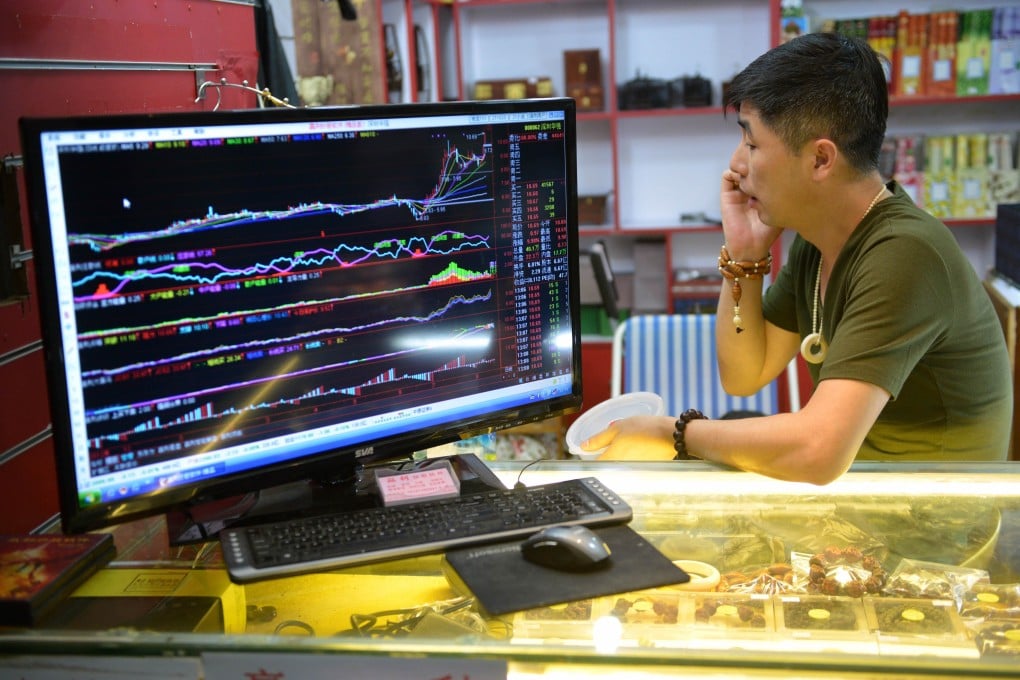China stocks retreat as Evergrande delays debt repayment while PBOC injects US$18.6 billion into market to calm nerves
- Mainland stocks resumed trading after a two-day break as crisis at China Evergrande hit trading sentiment
- Distressed developer has asked to delay interest payment on local-currency bonds due this week, according to an exchange filing

The CSI 300 Index of the biggest companies on the Shanghai and Shenzhen bourses slid 0.7 per cent on Wednesday, with sub-gauges of financial and consumer stocks leading the decline. The Shanghai Composite Index reversed losses to advance 0.4 per cent.
An index of financial stocks slumped 1.2 per cent. China Minsheng Banking lost 1.8 per cent to 3.90 yuan, while Ping An Bank and China Everbright Bank tumbled by at least 1.5 per cent. The three lenders have the highest credit risks to the property sector, according to Citigroup.
“Evergrande’s debt problem has triggered concerns about the stability of private property developers and contagion risks along the industry chain,” said Li Lifeng, a strategist at Huaxi Securities. “The impact on the property market is controllable and chances of a systemic risk are low.”
